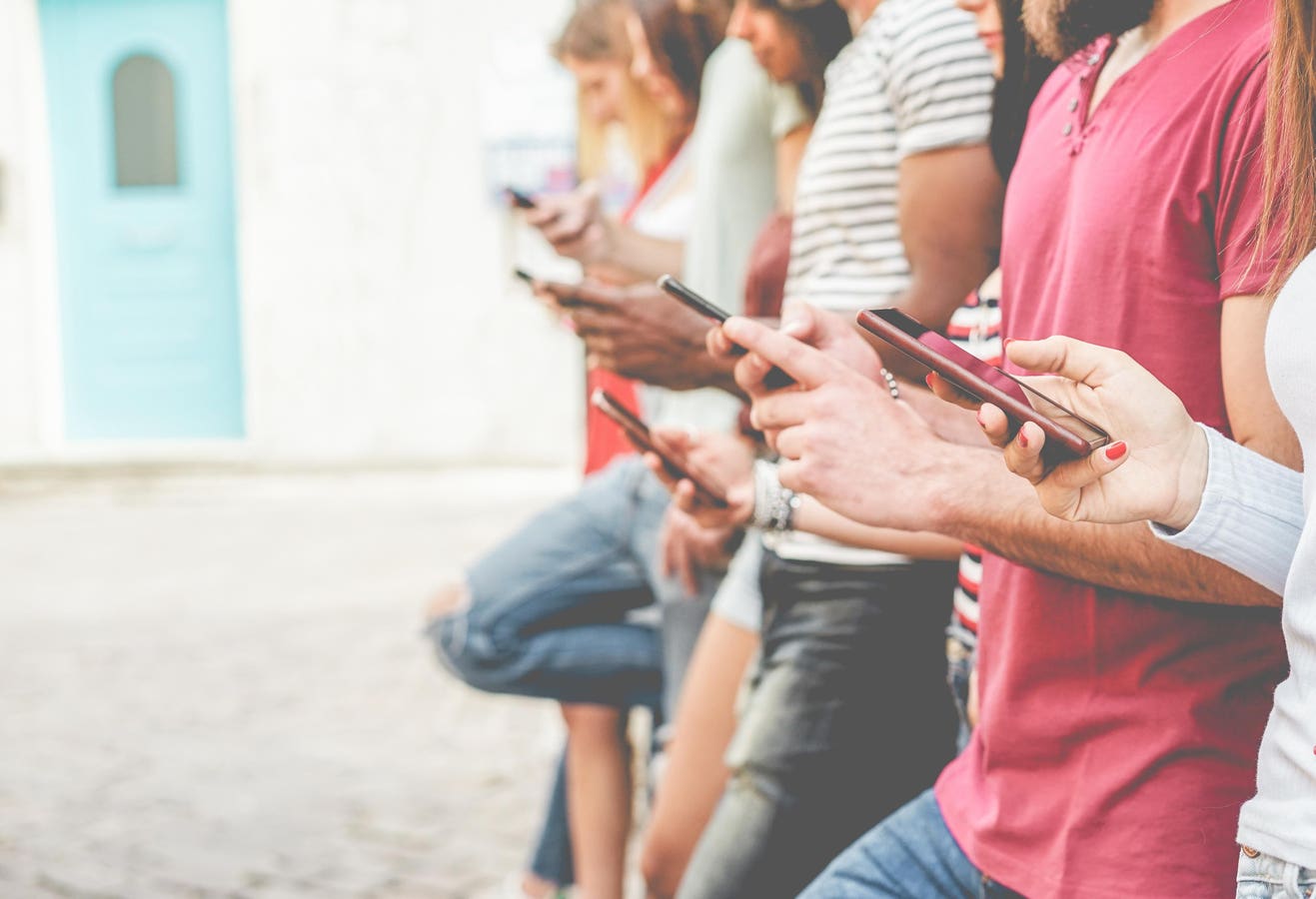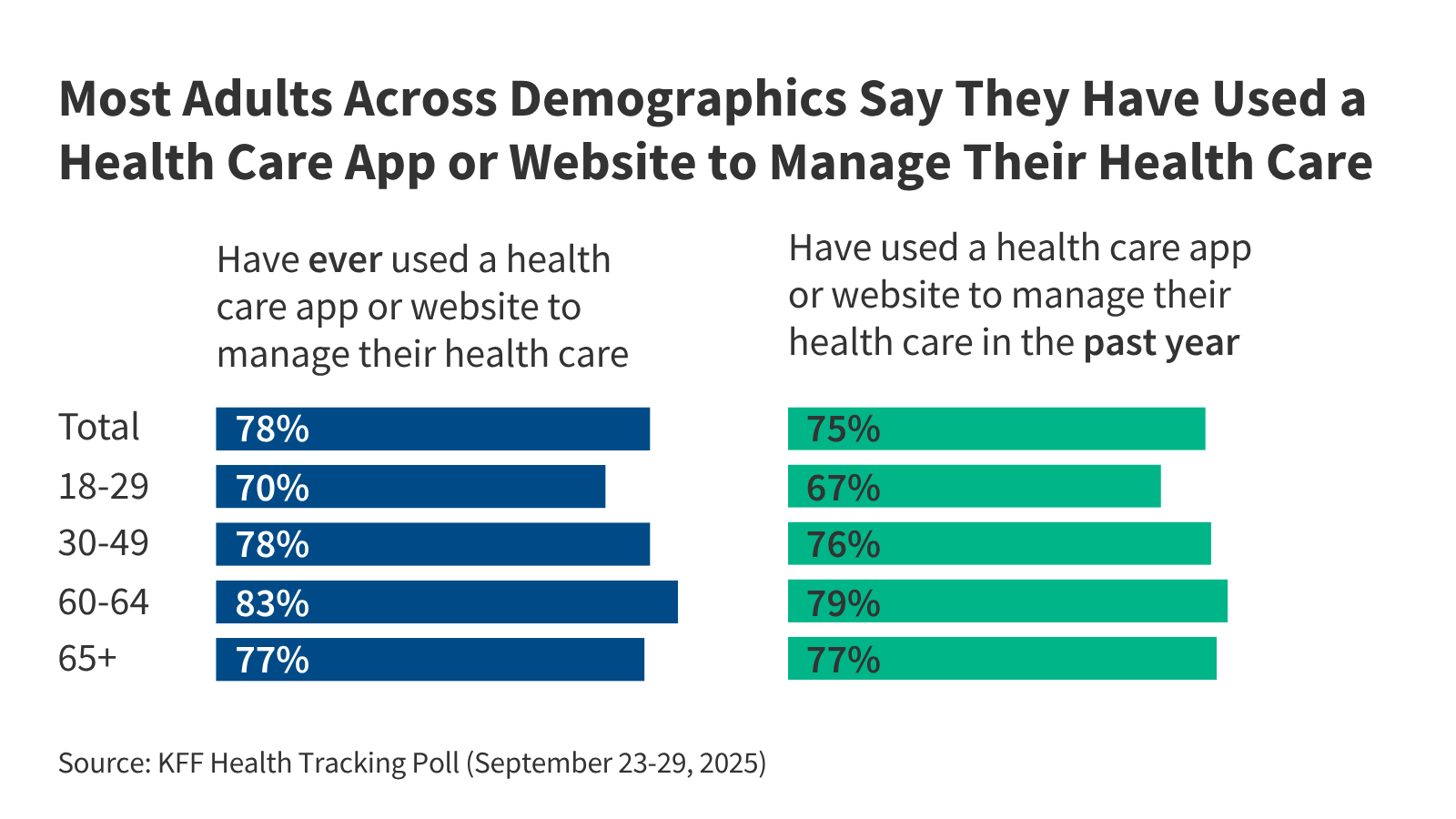How often do you have the experience of picking up your phone when you swore you’d focus on the task you were working on, the meal you were enjoying, or when you were trying to drift off to sleep? Do you feel anxious when the battery starts getting low or you’re asked to turn your phone off? Or what about all those times you grab your phone with the intention of doing a very specific thing you need to do, only to find yourself scrolling social media twenty minutes later, having forgotten why it was you’d looked at your screen in the first place?
If any of this sounds familiar, you are absolutely not alone. Cell phones are quite literally designed to be addictive, and we’ve become conditioned to use them for far more than placing phone calls and sending text messages. Here’s what experts have to say about how phone use impacts our wellbeing and how to set healthier (and realistic) boundaries.
Many people struggle with setting healthy boundaries with their phones.
How our phone use impacts our mental and physical health
Dr. Scott Lyons, licensed psychologist, educator and author of the best selling book Addicted to Drama: Healing Dependency on Crisis and Chaos in Yourself and Others, explains, “The attachment to our phone can create a rift, a sort of digital barrier that separates us from genuine connection. In personal life, being perpetually plugged in can lead to moments where we’re physically present but emotionally absent, missing out on the nuances of face-to-face interactions. At work, the constant pull of notifications can fragment our focus, reducing productivity and potentially straining professional relationships. It’s as if we’re in a perpetual state of divided attention, always half-listening, half-engaged.”
Shira Gill, author of LifeStyled , echoes, “Our devices are both tools for connection and sources of stress. They help us stay informed, communicate with friends and colleagues across the world, and offer access to seemingly endless knowledge.” However, she adds, “excessive use—fueled by addictive designs and constant notifications—can lead to anxiety, stress, and a reduced sense of peace and presence. Studies show that compulsive tech use can disrupt sleep, increase anxiety, and foster feelings of inadequacy.”
Why we have a hard time breaking away
“Our attachment to phones often stems from a deep-seated need for connection and stimulation,” Dr. Lyons explains. “In a world where attention is the currency, our devices become a portal to endless possibilities, offering a sense of belonging and immediacy that can be incredibly alluring. Beneath this allure lies a more complex narrative: we might find ourselves reaching for our phones as a way to escape discomfort, boredom, or even the underlying unease that whispers in the quieter moments of our lives.”
Under the hood, brain chemical dopamine also plays a big role in phone attachment and addiction. “Dopamine is the brain’s little chemical messenger that plays a key role in our reward and pleasure centers,” explains Dr. Lyons. “Each interaction with our phones, each notification, releases a hit of dopamine, creating a feedback loop that keeps us coming back for more. This cycle can lead to a state of overstimulation, where we’re constantly chasing the next digital high, leaving us feeling unsatisfied and disconnected from the present moment.” You may or may not be conscious of how your phone use is actually a dopamine-seeking behavior, but recognizing the association and calling it out in the moment can be an important step in developing a healthier relationship with your phone.
Waking up in the night to check your phone is just one sign of being overly attached.
Signs you need a break
Keep an eye out for warning signs that you need to set healthier boundaries with your phone. Here are some common red flags:
- You’re constantly reaching for your phone
- You experience significant anxiety, sadness, anger or similar emotions when you’re away from your phone or can’t check it
- You wake up in the middle of the night to check your phone
- You find it hard to focus or be present because you feel compelled to check your phone
- The amount of time you spend on your phone impacts your professional and/or personal life
- When you do try to limit your phone use, you go back to your usual habits very quickly
Do you need to do full-on digital detox to fix the problem?
While the degree to which someone takes a break from their phone can vary a lot, there are many known benefits to decreasing time spent on your phone. Clint Jarvis, CEO and Co-Founder of the app Roots, which helps users set boundaries with their phone says, “Because being constantly on our phone makes it hard to be more present in our day to day life, you find more joy in small things when you put your phone down.” He adds that being more present flows into so many areas of our life. “It’s not just about the phone but we are so conditioned to be on our phone. It’s hard to get into a state of flow. In a lot of ways our phones rob us from that experience of going deep.”
Additionally, explains Jarvis, being constantly connected to our devices makes it hard to free up time we need, driving stress and overwhelm. “If you spend less time on your phone you can unlock time for other things.”
There are a number of ways to do a digital detox besides locking your phone in a drawer or throwing it into the ocean.
Gill recommends, “Start small by deciding when, where, and how you want to use your phone.” For example, she says, you could set phone-free hours, designate specific places as tech-free zones, and use tools either built ito your phone or apps that allow you to limit access at the desired times. While you may not decide to use these apps forever, they can be a big help in the beginning.
While Roots did not start out as an app to assist with phone boundaries, says Jarvis, it evolved into a tool to help people set limits with their usage. “First off, you want to identify which apps you most need to set boundaries with. Some of the apps Roots users most commonly set boundaries on are those related to social media, work, messaging, video streaming, and gaming.”
And you don’t have to start with all of them. “If you can just tackle the big offenders, you can make a big impact. It’s that habit of spending less time on these that can make a difference.”
Think about which times of day during which it would be most beneficial for you to set limits with those apps, Jarvis adds.
Gill also has some tips for reducing digital clutter on your phone, which can amp up our stress without us even realizing it. Here are some of her favorite ways to simplify:
- Clear Your Home Screen: Move apps to a secondary screen and replace your background with a calming image.
- Streamline Social Media: Choose one app to invest in and delete the rest, unless professionally required.
- Use Auto-Responses: Redirect social media messages to email with a simple autoresponder.
- Email Reset: Archive old emails to start fresh with a manageable inbox.
- Audit Subscriptions: Cancel unused memberships, newsletters, or digital services.
- Declutter Photos: Merge duplicates, store favorites in cloud storage, and delete the rest.
- Silence Notifications: Turn off all non-essential push alerts to regain focus.
Having healthier boundaries with your phone use can help you enjoy an overall better quality of … [+]
Fostering a healthy relationship with your phone for the long term
Learning healthier phone behaviors can take time and effort, but if you find your motivation flagging, think of the long-term benefits. “By setting clear boundaries and engaging mindfully with technology, “says Gill, “we can optimize its value while reclaiming mental clarity and peace of mind.”
Because the phone-free time opens up from space for other things, Dr. Lyons recommends leaning into the things that truly fill your cup. “Engage in offline activities that nourish your soul, like reading a book, going for a walk, or having a heartfelt conversation with a friend.” WHen you see how much better you feel, it can encourage you to continue with those healthy tech habits.
However, if you find yourself getting frustrated if you have slip-ups along the way, be gentle with yourself, says Dr. Lyons. “Most importantly, cultivate self-compassion in this journey, understanding that it’s a process, and each small step is a victory in itself.”


